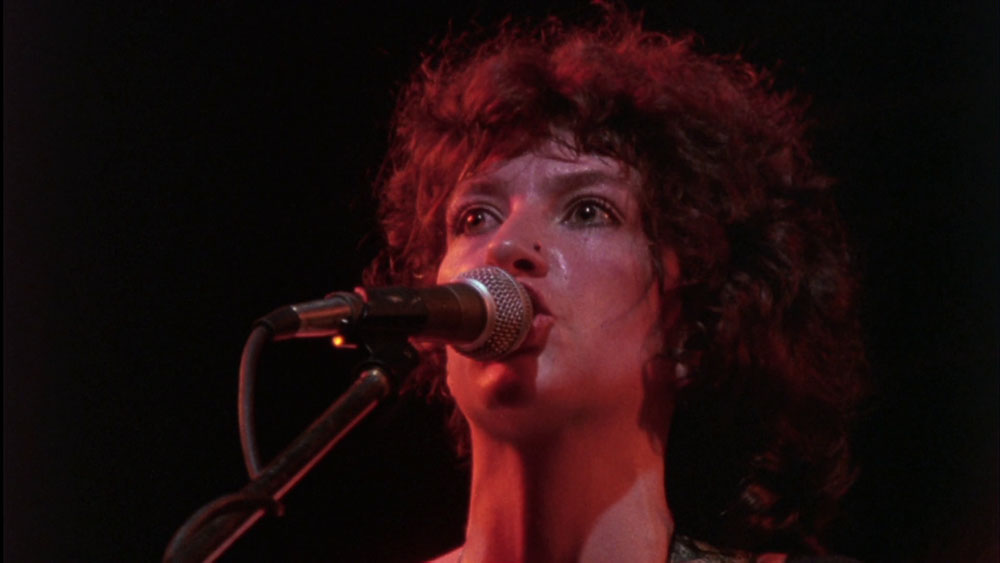The lineup of the 1982 music documentary Urgh! A Music War reads like a who’s who of punk, post-punk, and new wave bands. Acts from both the UK and the US fill this critical document with the urgent sound of an alternative music that had, by this point, found its way artistically and was on the cusp of commercial viability. Urgh! features groups like The Cramps, DEVO, Chelsea, X, Oingo Boingo, Steel Pulse, Gang of Four, Klaus Nomi, and Dead Kennedys at their nervous, acerbic, and energetic best, giving a broad view of the mainstream punk scene right before hardcore punk claimed the mantle of de facto authenticity. The film overwhelms the viewer with performance after performance and forsakes interviews in favor of high musical velocity, creating an effect similar to seminal punk compilations like Burning Ambitions (1982) and Flex Your Head (1982) that shared an ability to transform the ears and minds of young initiates wholesale.
Directed by Derek Burbidge, who also directed the music video for Gary Numan’s breakthrough hit “Cars,” the film was shot from August to September of 1980 and chronicles many of the most important bands of the time along with some lesser known performers. Beginning with The Police, Urgh! Quickly makes its way into more musically aggressive waters. Chelsea presents the rock n’ roll spirit of punk with a breathless version of “I’m on Fire” and Klaus Nomi shows viewers the larger possibilities of the genre with one of his completely original space operas. The performances are shot in a straightforward manner that provides one of the clearest and cleanest documents of the punk era— a sharp contrast to the down and dirty music. The blacks are deep, creating a sort of abstract void for the performers, and the audience is only seen occasionally, keeping the film’s focus largely on the artists. High quality sound and image bring the flailing pantomime and politically aggressive banter of Jello Biafra to dazzling life as the Dead Kennedy’s perform “Bleed for Me,” a horror story about the US-backed death squads in South America, CIA torture, and ghastly political photo ops. The specter of radical politics is present throughout the film, like in Steel Pulse’s performance of “Klu Klux Klan,” which features a Black man donning a white hood and sheet as the band plays. It is this unambiguous dimension of protest and discontent that helps make both the music and the film feel visceral and vital.
While Urgh! teems with several iconic performances, its crown jewel is the Cramps’ rendition of Johnny Burnette’s classic “Tear it Up.” The Cramps existed at the nexus of what was old and new about punk—they were partly a celebration of rock n’ roll at its most traditional and partly a debauched freak show that spat in the face of polite society. In the film, the group’s singer, Lux Interior, towers over the audience, his leather pants riding so low that to be completely nude would somehow be more decent. Meanwhile, Poison Ivy strums her guitar, her face a mask of icy stillness, as she unhurriedly chews her gum and lets the slightest of smirks grace her porcelain face. The Cramps turn “Tear it Up” from the briefest of cathartic rock n’ roll howls into a ritualistic evocation of sex and badness. The performance, like many in the film, allows viewers to see the art of punk: how it claimed a newly rejuvenated musical excitement built on the bones of rock n’ roll and a thoroughly contemporary possibility for idiosyncratic expression.
Urgh! A Music War screens tonight, August 14, Alamo Downtown Brooklyn on 35mm as part of the series “Weird Wednesday.”



